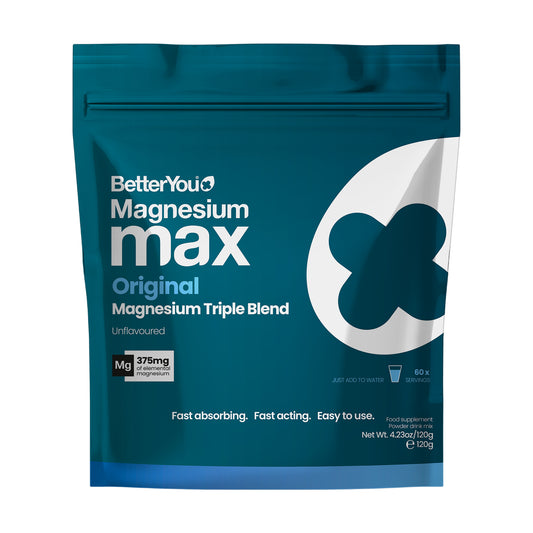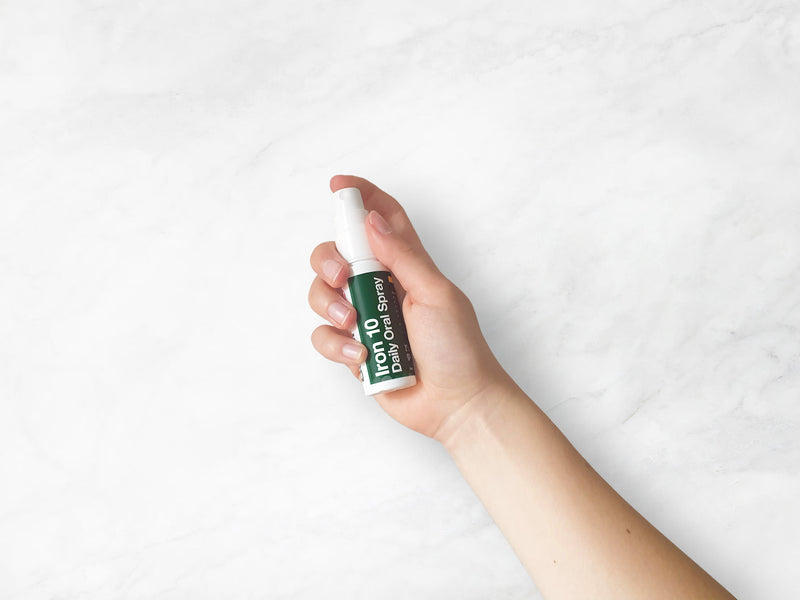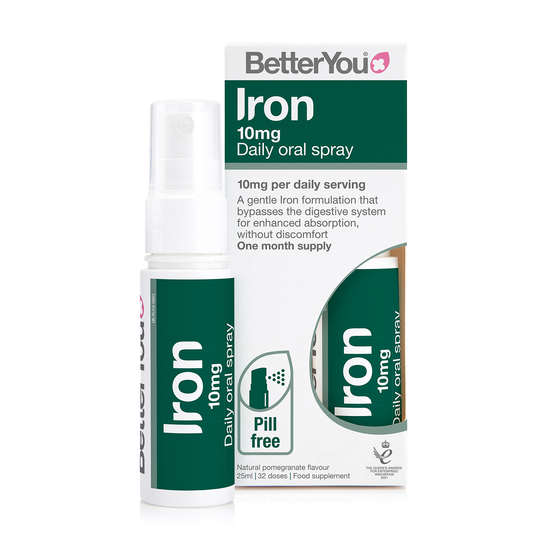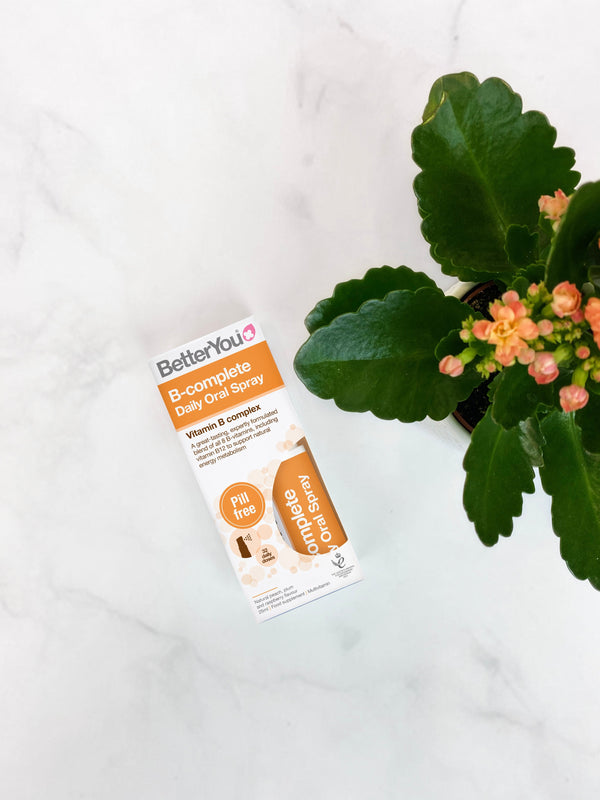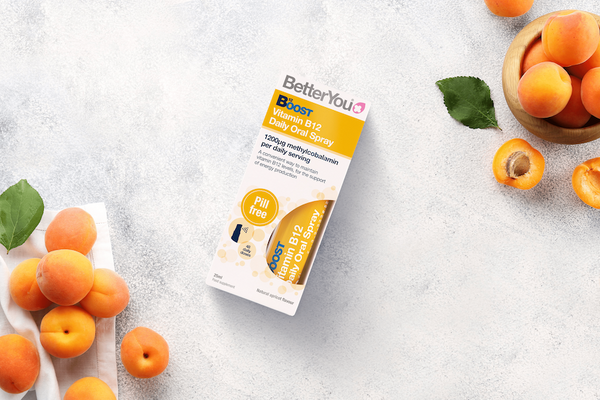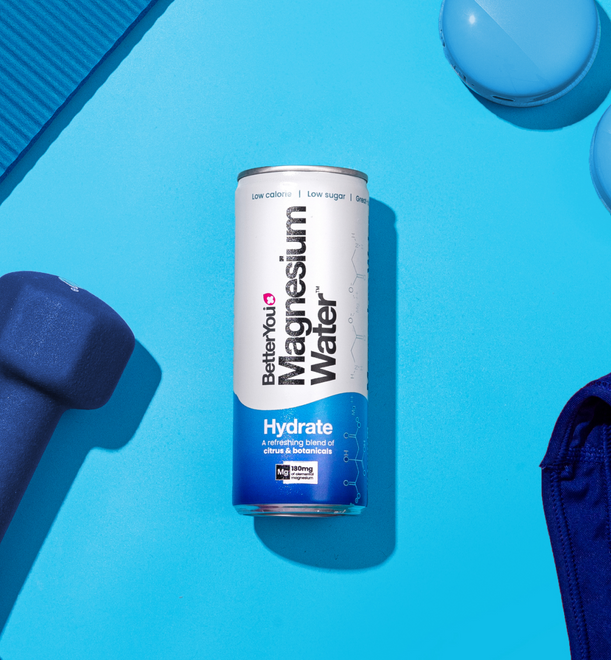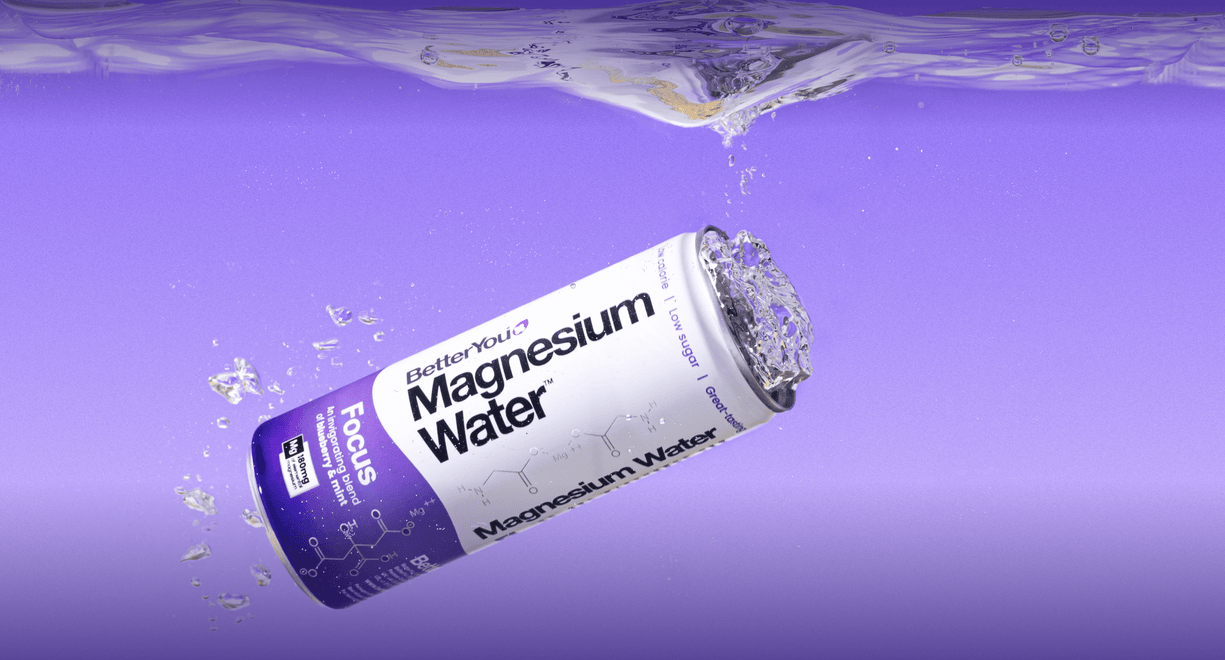Spotting the signs and symptoms of iron deficiency is vital to keeping your body working the way it should. Iron serves an important purpose within our blood and the cells of our body. It’s important to know if you are getting enough nutrients, whether you’re at risk of iron deficiency, and how to keep your iron levels at their optimal amount. We’ve put together the ultimate guide on iron deficiency. See the symptoms, causes, and how to increase your mineral intake.
Table of Contents:
- What is Iron deficiency?
- 5 Symptoms of Iron Deficiency
- How to Test Nutrient Levels
- 9 Causes Iron Deficiency?
- Are You at Risk of Iron Deficiency?
- 8 Sources of Iron
- 10 Potential Side Effects of Traditional Iron Supplements
- Increase Iron Intake with BetterYou
What is Iron deficiency?
Iron deficiency is when you are not getting enough iron for oxygen to be transported to muscles and the rest of the body. Your body needs iron to process food and provide energy, as well as to help create red blood cells. Red blood cells are what carry oxygen around the body, so making sure you have enough iron is very important. Those with low iron levels may develop iron deficiency and require iron supplements to help boost their mineral intake.
5 Symptoms of Iron Deficiency
Spotting iron deficiency is important to ensure your body is getting enough iron. Without the right levels of iron, the red blood cells can’t function properly to supply your body with enough energy. This can cause symptoms like shortness of breath, fatigue, and pale skin. To help you spot whether you could be at risk of iron deficiency, we’ve listed the top signs of low iron to know.
- Tiredness and Lack of Energy - Iron affects the red blood cells which carry oxygen around the body. You may be tired and fatigued if you don’t have enough iron or are suffering from iron deficiency. This is because your muscles and body cells need this oxygen to make energy to get you moving. If you have iron deficiency, your body won’t be making enough energy. A lack in other vital vitamins and nutrients can also lead to low energy, taking natural energy boosting supplements can support a natural energy boost over time.
- Craving non-food items - Known as ‘pica’, iron deficiency can cause the feeling that you want to eat things that are not food. It’s not clear why iron can affect this, but it can be a sign of iron deficiency. It often affects those who are pregnant or children. For kids, taking children’s supplements can help to keep their vitamin levels at their best to avoid iron deficiency and symptoms like pica.
- Pale Skin - While not on its own a symptom of iron deficiency, people with iron deficiency may appear paler than they might normally do when they have optimal mineral levels. This is because the red blood cells are reduced, and so fewer reach the skin. This could lead to a paler, less-rosy complexion. Iron deficiency can also affect your skin in other ways. You may experience dry, itchy skin as well as brittle nails. Taking skin health supplements can help you boost your skin with the vital nutrients it needs to look and feel healthy.
- Shortness of Breath - Those with iron deficiency may also experience a shortness of breath. If your iron levels are low, your body can’t make enough red blood cells to carry oxygen around your body, leaving you with possible symptoms of shortness of breath.
- Noticeable Heartbeats - Otherwise known as heart palpitations, noticeable heartbeats can be a sign of iron deficiency. This is because the heart has to work harder for blood to reach every part of the body. People suffering from an iron deficiency may have the feeling that their heartbeat is more noticeable or quicker than usual.
Iron plays a fundamental role in so many functions within the body, each producing a symptom which manifests itself in a different way. If you have one or more of these symptoms, you may be experiencing iron deficiency. If you think you have any signs or symptoms of iron deficiency, you should seek medical advice from your GP or other health professional. The healthcare team may arrange a blood test to check if you are suffering from iron deficiency.
How To Test Nutrient Levels
If you want to check your nutrient levels at home, you can with BetterYou. Using our At Home Iron Test Kit, you can easily check your iron levels, and receive a free Iron Oral Spray on completion, as well as a personalised supplementation plan based on your results. Haemochromatosis, a condition that causes iron overload, also has similar symptoms to this mineral deficiency. Checking your levels is essential to understand your iron levels before beginning supplementation.
9 Causes of Iron Deficiency
Spotting the signs of iron deficiency is important to encouraging a healthy lifestyle. Iron plays an important role in the body, and so knowing what the causes of iron deficiency are is vital to ensure your mineral intake stays at its ideal level. Some causes of iron deficiency include:
- Lack of the mineral in diet
- Heavy periods or pregnancy
- Bleeding in the stomach or intestines
- Taking non-steroidal anti-inflammatory drugs (NSAIDs), such as ibuprofen and aspirin
- Stomach ulcers
- Inflammation of the bowel or food pipe (oesophagus)
- Piles
- Cancers of the bowel or stomach – but this is less common
- Other conditions that lead to blood loss
Are You at Risk of Iron Deficiency?
Although low iron levels are possible for anyone who is not getting enough of the mineral in their diet, there are people who may be more at risk. This could mean you are more likely to suffer from tiredness and iron deficiency skin. These people who may be more at risk of iron deficiency include:
- Those who are pregnant - providing nutrients for two can mean you need more vitamins and minerals for yourself. Taking pregnancy supplements can be a good way to support health for parent and baby.
- Vegetarians and vegans - iron is commonly found in meat products, therefore those that have a restricted diet may miss out on some vital nutrients. Taking vegetarian supplements and vegan supplements can help to provide these essential nutrients.
- Athletes - training can stimulate the need for more red blood cells to supply the body with sufficient energy for your exercise, therefore there’s an increased need for iron.
- Those with malabsorption issues - problems within the intestine such as IBS, IBD and celiac disease mean vital nutrients aren’t processed efficiently. It may mean you’re more at risk of iron deficiency.
- Those with heavy periods - as iron is found in blood, losing heavy amounts of blood each month could contribute to low levels of this vital nutrient.
Always seek medical advice from your GP or health professional if you think you may be at risk of iron deficiency and before taking supplements.
8 Sources of Iron
There are many ways to increase your nutrient levels. One way is by improving the foods in your diet which naturally affect mineral levels in the body. If you want to improve your iron intake in your diet, try to eat and drink more:
- BetterYou’s Iron Supplements
- Dark-green leafy vegetables like watercress and curly kale
- Cereals and bread with extra minerals in them (fortified)
- Meat
- Dried fruit like apricots, prunes and raisins
- Pulses (beans, peas and lentils)
- Tofu
- Seeds & nuts
If you can, try to reduce the amount of food and drink which can lower how much of certain minerals your body absorbs. Eat less food and drinks such as:
- Tea
- Coffee
- Milk and dairy
- Foods with high levels of phytic acid, such as whole grain cereals
10 Potential Side Effects of Traditional Iron Supplements
Another way to improve your mineral intake is to take iron supplements. Unfortunately, there can be some possible side effects to taking traditional iron supplements. Traditional tablet or capsule forms of iron supplements can be limited by poor absorption and may cause several side effects. Potential side effects of traditional iron supplements may include:
- Abdominal discomfort
- Nausea and vomiting
- Constipation or Diarrhoea
- Heartburn
- Black or dark-coloured stools or urine
- Temporary staining of the teeth
- Unusual or metallic taste in your mouth
- Headaches
- Redness of the skin
- Restless legs
Taking your iron supplements with or shortly after food, and drinking orange juice after taking them, can help to reduce the possible side effects of taking these traditional supplements.
Increase Iron Intake with BetterYou
With BetterYou, you can increase your iron levels to increase with our simple pill-free alternatives to traditional iron supplementation. We developed our iron supplements to reduce the risk of low iron in a natural and easy way. With the need for an easily absorbable, great tasting iron supplement growing, we developed our Iron Oral Sprays. This spray was designed to provide a solution to the potential digestive discomfort and poor absorption experienced from traditionally ingested iron supplements.
An intra-oral spray is an effective method of delivering nutrients into the mouth rather than relying on primary processing by the digestive system. Absorbed through the soft tissue in the mouth, this unique way of supplementing the essential mineral, iron, provides an effective alternative to traditional tablets or capsules that can be tough on the digestive system. That way, you can increase you levels and help reduce the symptoms of iron deficiency, such as tiredness and lack of energy.
Pill-free supplements from BetterYou
Our range of vitamin oral sprays and topical magnesium supplements provide a fast, effective alternative to traditional tables and capsules. Scientifically formulated to deliver maximum nutrient absorption, with minimum fuss, to help you feel and live better.
Take control of your health today with our magnesium supplements to aid natural sleep, vitamin D supplements to boost your immunity and our at-home health checks to get a clear picture of your nutrient levels.


